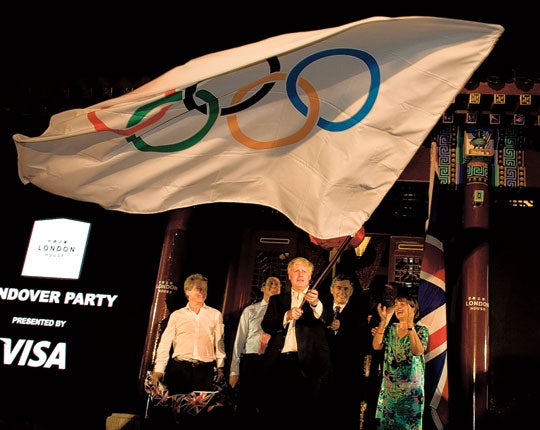Illegal bets are 'cancer' killing sport, says Rogge
IOC president says London Games could be affected by increase in mafia-linked activity

Illegal betting presents an increasing threat to the credibility of all sport, according to Jacques Rogge. The president of the International Olympic Committee, and one of the most powerful men in sport, has issued a stark warning that betting is as much of a danger as illegal drug use, describing it as "potentially crippling" and a "cancer" with links to "mafia" organisations.
Rogge, writing exclusively for The Independent, has also warned that the Olympics, which London hosts next year, could be hit if action is not taken to combat the problem. Rogge has called for cross-governmental co-operation as the only means through which the issue can be addressed with any degree of impact.
Hugh Robertson, the Minister for Sport, will join his counterparts from Australia, France and Switzerland today in Lausanne, where Rogge is hosting a ground-breaking meeting to discuss illegal gambling at the IOC's headquarters. The secretary general of Interpol and the head of the corruption and economic crime branch of the United Nations Office on Drugs and Crime will also attend.
The issue of match-fixing, and its burgeoning offshoot spot-fixing, has long been a problem in cricket – three Pakistan players are due in court in London later this month to face criminal charges – but Rogge believes it now presents a very real and imminent threat across the sporting spectrum. Last week Andy Mangan, one of the five players banned by the Football Association for betting on matches, told The Independent that it remains a problem in the lower leagues and young players in particular are "vulnerable" to gambling.
"Illegal betting has yet to be detected at an Olympic Games, but we are not naïve," writes Rogge. "We know the day will eventually come.
"The potential for corruption is at an all-time high due in part to the advent of betting on the internet and the anonymity, liquidity and sheer volume it encompasses. There are more temptations and pressure on athletes, coaches, officials and others to cheat for betting gains than at any other time in the past. What's worse, this cancer continues to go largely unregulated in many parts of the world."
Robertson has been pushing for a concerted international effort, raising the issue in a session with Commonwealth sports ministers in Delhi last year and also with his European opposite numbers. "The integrity of sport is absolutely paramount," said Robertson yesterday. "Fans must be confident that what they are seeing in front of them is fair and true. A unified, international approach can help tackle this threat head on.
"We need all sports to work with us on this and have clear penalties in place for those that jeopardise true competition in sport. Educating players must also be a crucial part of the solution. I welcome the IOC taking on this issue and we will help by sharing best practice from our approach in this country and offering to lead, or support, any future international initiatives."
Robertson's willingness to offer government-level involvement will be welcomed by Rogge and the IOC. "We need a broad collaboration with governments," said Rogge. "These are mafia links and mafia people and they bet at the same time while manipulating the result of a match."
He acknowledged that sport would have to play its part. Representatives from Fifa, the Italian football association and the Bundesliga are taking part in today's session, but nobody from the ICC, cricket's governing body, will be in attendance. The other British representatives are Nick Tofiluk, director of regulation at the Gambling Commission, and Colin Moynihan, president of the British Olympic Association.
Fifa is investigating two international friendlies played in Turkey last month which saw seven penalties scored in games between Bulgaria and Estonia and Latvia and Bolivia. In the Czech Republic a police investigation into match-fixing in the country's top-flight football league has just concluded, with a decision on whether anyone is to be charged expected later this month.
Carsten Koerl, the chief executive of the German betting watchdog Sportradar, claimed recently during the ongoing trial of four men for orchestrating a match-fixing ring in Bochum that "manipulation is increasing". Koerl said: "In the past five months we assume that between 70 and 100 games in Europe were manipulated."
Snooker and tennis have also suffered from match-fixing claims
In the UK, the previous government appointed the former Liverpool chief executive Rick Parry to prepare a report into sports betting integrity. Its conclusions, supported by the current administration, were published last year and led to the "beefing up" of the sports betting intelligence unit that works within the Gambling Commission and an increase in education projects for players across sports, an aspect that is seen as being vital. Uefa and Fifa both have specialist units in place to track irregular betting patterns.
Subscribe to Independent Premium to bookmark this article
Want to bookmark your favourite articles and stories to read or reference later? Start your Independent Premium subscription today.

Join our commenting forum
Join thought-provoking conversations, follow other Independent readers and see their replies
Comments